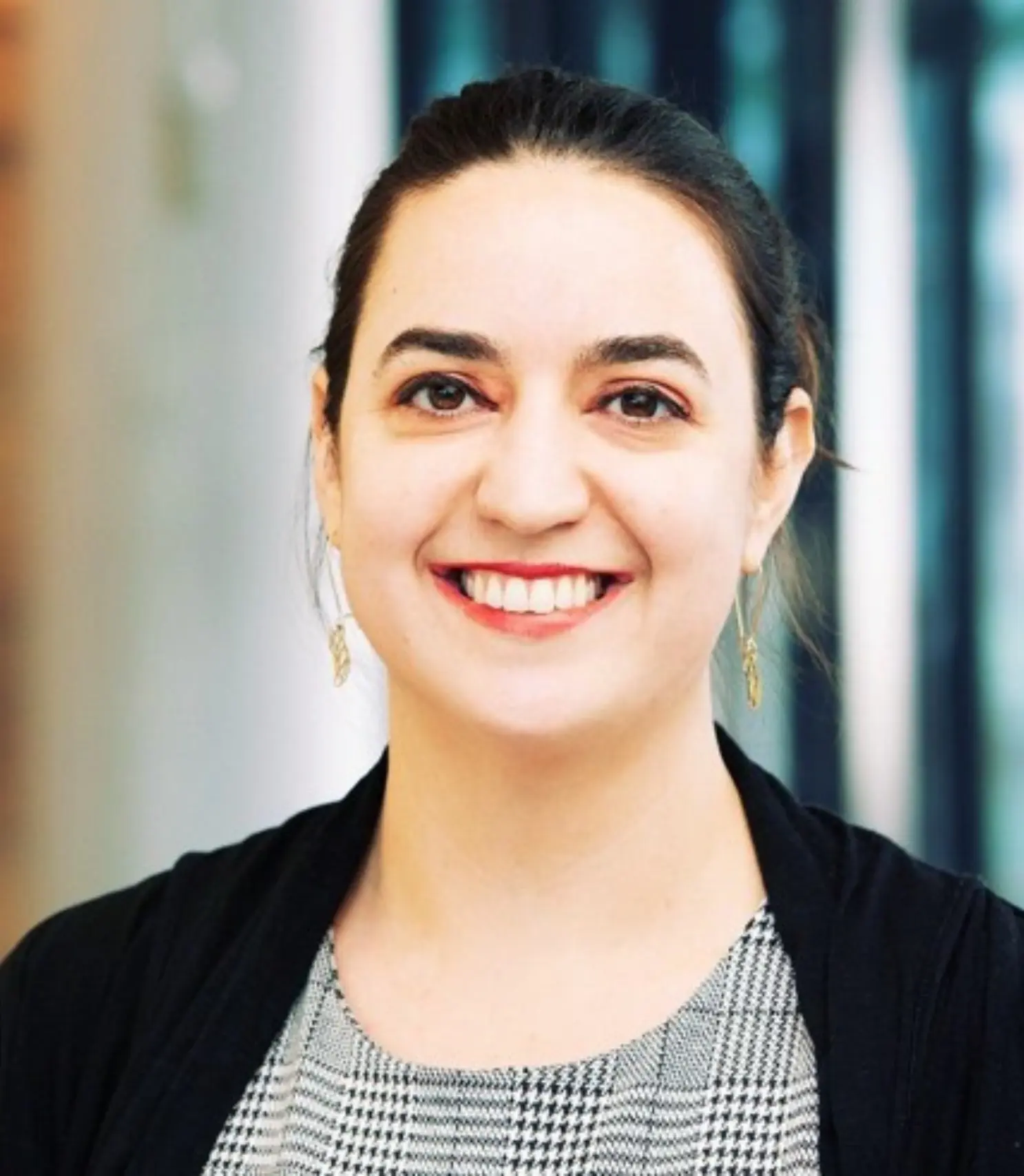
Trish Harris
Questrom School of Business MBA, Class of 2020
ASSOCIATE DIRECTOR, US RARE HEMATOLOGY MARKETING, SANOFI
“Chase new experiences and growth opportunities, not titles. In the long-term, it will help you know what you want (and as importantly- don’t want), and get you to the right role faster.”
Trish is an alumnus of Questrom’s MBA program. See how Questrom prepared her for her career as an Associate Director at Sanofi.
Q: What city/state are you currently in?
A: Boston, MA
Q: What is your current company and job title/role?
A: Associate Director, US Rare Hematology Marketing, Sanofi
Career Trajectory
Q: What was your first job out of your degree, and what strategies helped you land it?
A: Product Manager at Sanofi, US Oncology Franchise Marketing
Q: Did you always know you wanted to go into [industry/field], or did your plans evolve over time?
A: My career path changed over time, as I learned what roles and environments were the best fit for me. I’ve always wanted to work at mission driven organizations and had first thought about working in the non-profit sector early in my career. However, my entry-level job ended up being at a small medical device company and ended up with deep experience in the healthcare sector at a patient-centric organization.
Q: Have there been any unexpected detours in your career? How did you navigate them?
A: After the company where I started my career was acquired, it was clear that there were no growth opportunities for me unless I was willing to relocate to the suburbs of Maryland (an unappealing option being a Massachusetts native without a car). Not only that, but I was looking to pivot from sales to a marketing role and was getting very few external interviews. My old work colleague who knew I was looking sent me a position at a start-up in Cambridge that was looking for a sales/marketing lead. Although the job description was vague, the pay was lower, and the team was very small, I took the risk believing that it would provide me with more opportunities and allow me to shape my own role. In that startup, I learned more in a week than I had in a year but managed the tradeoff of much lower job security. It’s all about being honest with yourself on what matters most to you at that stage in your career, and what tradeoffs you are willing to make to get it.
Q: What’s the best career advice you’ve ever received?
A: Chase new experiences and growth opportunities, not titles. In the long-term, it will help you know what you want (and as importantly- don’t want) and get you to the right role faster.
Industry Insights & Future Trends
Q: What trends do you think new graduates should be aware of in [industry]?
A: Technology advancements like AI and machine learning, and continued personalized patient-centric focus.
Q: Are there any emerging skills or technologies that you think will be crucial in the next 5-10 years?
A: Being well-versed with AI, omnichannel strategies, and digital tools.
Q: What courses that you took do you recommend current students pay particular attention to during their time at Questrom?
A: The lessons that stayed with me were the strategy classes that trained you how to think through complex business problems. Many people are uncomfortable with uncertainty and cannot work with others to arrive at a solution so leave the problem for another team to tackle.
Questrom Tools that helped in your career journey
Q: What resources in the career center helped you navigate your career journey?
A: Your professional network is one of your greatest assets—but like any valuable resource, it requires ongoing investment. LinkedIn isn’t just a digital resume; it’s a platform where relationships are built, opportunities are discovered, and your professional brand takes shape. To make the most of it, you need to be intentional. Show up consistently. Share insights. Engage thoughtfully. With time and energy, your network will not only grow—it will work for you.
Q: What skills or experiences from your time at [school] have been most valuable in your career?
A: The connections and relationships with my fellow peers and faculty in the Health Sector Management Program have been invaluable both in landing my first role outside of Questrom and having a deep network in the Boston healthcare industry to learn from.
Advice for Soon-to-Graduate & Recent Graduates
Q: What are the biggest mistakes you see early-career professionals making?
A: Being very focused on one set path, and so not being open to or seeing other opportunities that could broaden their skill set or experiences.
Q: How should recent grads approach networking, especially if they don’t have an established network?
A: Be curious about people, and even if they don’t have the job you want, see what you can learn from their story.
Q: What do you/hiring managers look for when hiring employees?
A: In my experience, they look for the required skills of the role, team fit, and how you navigate challenges or setbacks.
Q: How can new graduates stand out in a competitive job market?
A: Take time to understand your own personal brand, and share with close peers to make sure that it’s reflective of how others identify in you. Not only will it help others remember you—since your story is unique—but it will also increase the chances of landing a role that sets you up for success.
